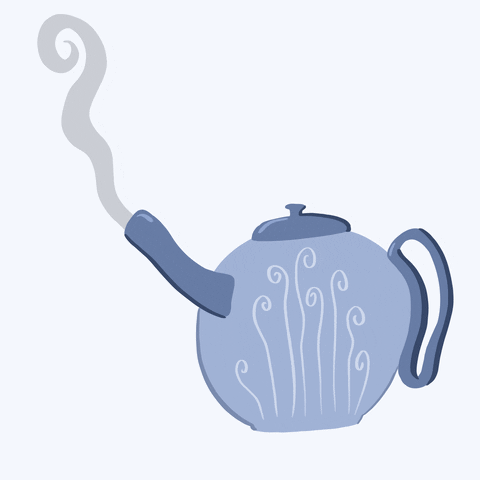- Notes from Inner Village Health
- Posts
- Ancient, yet current
Ancient, yet current
Chinese medicine continues to exist as a dynamic system
It is true that Chinese medicine is an ancient, traditional medical system.
It is also true that Chinese medicine is current and dynamic.
When I meet with clients who are new to Chinese medicine, sometimes I receive questions about how this medicine can fit into the world today. Someone might ask how an herbal formula can be helpful in 2024 when it was designed much closer to 1024.
First, I think it’s important to note that Chinese medicine is very much alive and common in other parts of the world. For example, in China, there are lots of Chinese medicine hospitals alongside western medicine hospitals. Chinese medicine doctors are taken seriously as peers of western MDs, and people can choose to train in Chinese medicine or western medicine through universities. This combination of approaches to medicine was very apparent throughout the COVID-19 pandemic, as specific herbal formulas were developed in China to help with new presentations of disease.
One of my teachers, Thomas Avery Garran, lived in China for almost 2 decades and was there during the height of the pandemic. He co-wrote The Role of Chinese Medicine in Treating and Preventing COVID-19 in Hubei, China with Shelley Ochs, which outlines some of the ways that herbal medicine and traditional approaches were used in response to the pandemic. You can read the open-source piece here.
There is a long history of sociopolitical influence on medicine in China - enough information to span many newsletter notes. Briefly, I will share that the Cultural Revolution brought about dramatic changes across the landscape of medicine in China, as there was a strong push to westernize medicine and get rid of traditional medicine. However, traditional medicine stuck around, due in part to necessity, as traditional practitioners (known as barefoot doctors) could serve rural areas where western medicine was not available, and also because the efficacy of traditional medicine was undeniable in the treatment of wounded soldiers. Many East Asian countries, such as Vietnam and Taiwan, have similar stories regarding traditional medicine.
Today, I see dissonance in the US when it comes to perceptions of systems of traditional medicine. There is a widespread idea that these systems are somehow outdated or unable to face our modern challenges. Many people also hold the point of view that traditional and conventional systems are contrary to each other or enemies.
I would like to challenge these perceptions.

Gif by Waveygifs on Giphy
Some of our health challenges are very similar to those that people experienced hundreds of years ago. For example, digestive issues have been observed by masters of medicine for thousands of years. I mentioned this when I wrote about Li Dong Yuan.
Also, as I noted earlier, the practitioners who work in these traditional systems today are simultaneously referencing seminal ancient texts and medicinal theory while making innovations that are tailored to the challenges of modern life.
Traditional practitioners train for a long time. Many people do not realize that acupuncture is a 4-year graduate degree that leads to a medical license. Chinese medicine herbalists, like me, have more variation in the sense that there is no licensure, but this herbal also takes years of study to develop fluency. We work with differential diagnosis, analyze tongues, listen to pulses, and develop protocols based on a constitutional assessment of the individual, which includes observations of body type, personality, and disposition.
Perhaps most importantly: Traditional and conventional (biomedical) systems are not enemies. They can exist together, and I am of the opinion that it would be great for many people to have teams of care that include practitioners across multiple modalities.
From a practitioner's point of view, I have great respect for the medical doctors, nurses, and other western medical practitioners in our communities. I think lots of my colleagues would agree.
We can look inside almost any medical system and find strengths. I hope, as time goes forward, that there is more transparency around what traditional medicine entails and how it can fit into modern life. Ultimately, it’s crucial to allow medicine to be individualized so that each unique person can find what will support them.
I’m interested to know more about your thoughts and perceptions of Chinese medicine and traditional medicine systems in general. You are welcome to leave a comment on the main blog page or send me a reply directly to this email. I would love to hear from you.
Warmly,
Artemisia

Clinical Herbalist | Chinese Medicine
Book Recommendation
If you are looking to read more about cultural shifts and East Asian medicine, I highly recommend the book Fourth Uncle in the Mountain: The Remarkable Legacy of a Buddhist Itinerant Doctor in Vietnam - a truly remarkable book written by Quang Van Nguyen and Marjorie Pivar. The book tells the true story of Quang’s life. He is the adopted son of a well-known traditional doctor He grew up in Vietnam throughout the Vietnam War, where he deeply studied traditional medicine, and he eventually made his way to the US. The book is a page-turner, filled with vivid depictions of traditional medicine in a land ravaged by war.
Reply